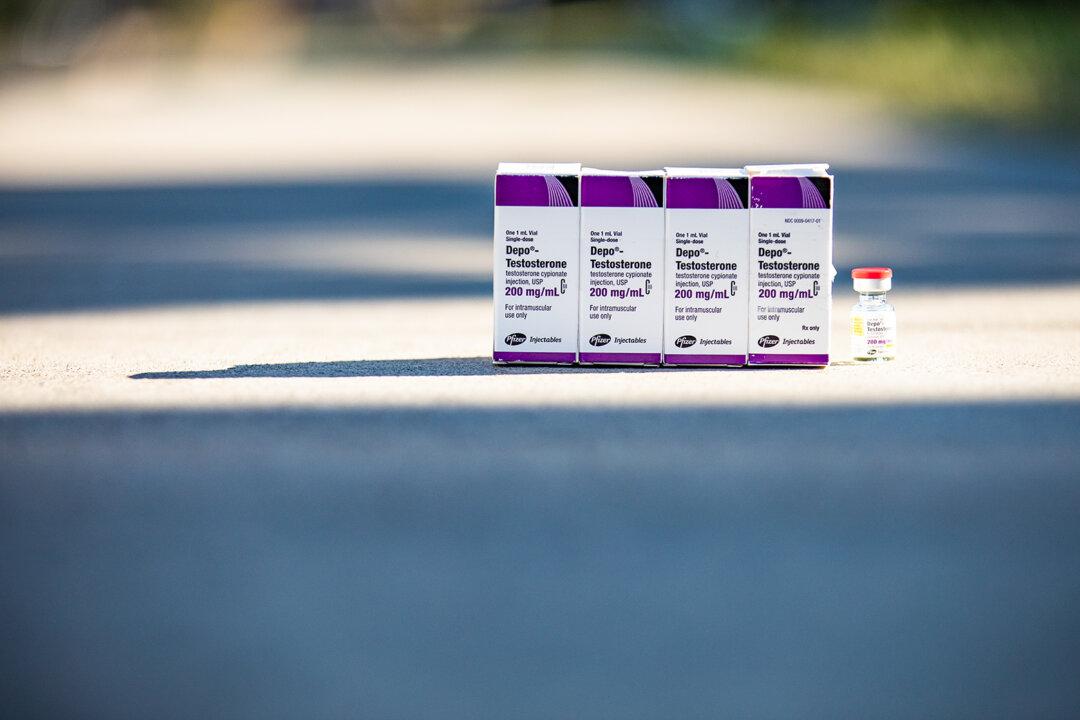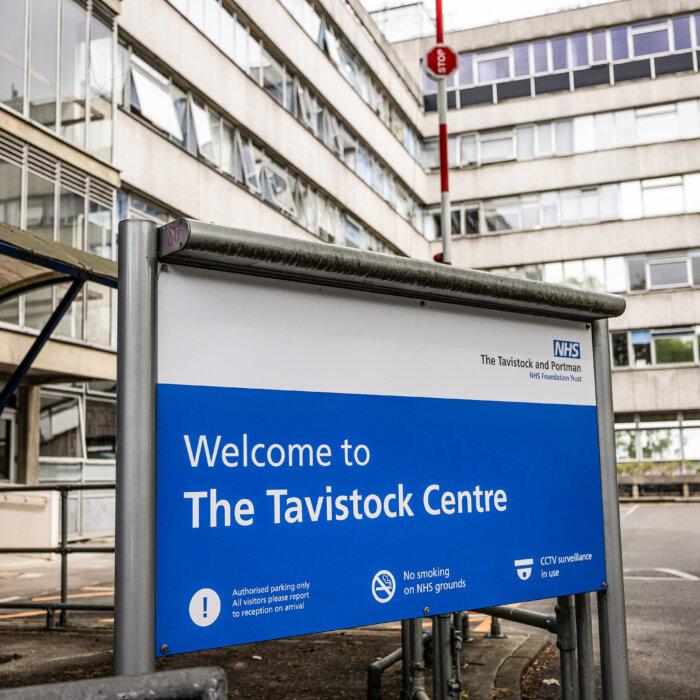NHS England has announced it will continue to prescribe cross-sex hormones for children as young as 16 following a review of its clinical practice for young people experiencing gender confusion.
Helen Joyce, a director of the Sex Matters campaign group, said in an email to The Epoch Times, “This disturbing development demonstrates that winning back evidence-based medicine is going to be a fight.”
She added that one of the more troubling aspects for her, “is that children who are self-harming or experiencing psychotic episodes or drug addiction will still be eligible for hormone treatment.”
“The NHS must urgently rethink before any more children are harmed by medical practices that are driven by ideology rather than evidence of clinical benefit.”
‘Limited Clinical Evidence’
The new NHS guidance states that staff must “ensure that the individual understands that there is limited clinical evidence on the effects and harms of prescribing [cross-sex] hormone treatment below their 16th birthday; and also that [hormone] treatment is a significant decision with long term indications.”The NHS announced earlier this month that puberty blockers would cease to be given to children with immediate effect, unless they are registered to be prescribed as part of a clinical trial due to start this year.
The government said in its updated guidance: “In creating this policy, NHS England has reviewed this clinical condition [of gender dysphoria] and the options for its treatment. It has considered the place of this treatment in current clinical practice, whether scientific research has shown the treatment to be of benefit to patients, and whether its use represents the best use of NHS resources.”
The treatment will be available for “young people with continuing gender incongruence [or] gender dysphoria from around their 16th birthday,” as long as they meet certain eligibility criteria, the NHS said.
Bill to Ban Puberty Blockers ‘Filibustered’
Her private member’s bill seeks to protect single-sex spaces and to prevent teachers from helping a child to “socially transition” as well as to abolish puberty blockers, including as part of clinical trials.Ms. Truss said on social media platform X: “The only way we will stop children being supplied with puberty blockers and cross-sex hormones is through primary legislation. Sadly, activist groups have too much influence on public bodies. Write to your MP to back my Bill.”
Former health minister Jackie Doyle-Price criticised the latest NHS guidelines, saying on X: “This kind of hormone treatment causes permanent loss of sexual function. It should never be administered to children for the purposes of gender reassignment.”
Referring to a number of so-called “detransitioners”—gender-confused young people given oestrogen or testosterone, who came to regret their attempt to live as the opposite sex—she added, “There are brave voices who have spoken openly about the permanent effects of cross-sex hormones.”
Cass Report Could Clamp Down on ‘Gender-Affirming Care’
The announcement comes ahead of the final report of the Cass review, due to be published in the first quarter of the year, and which is expected to clamp down on “gender affirming care” for young people in the NHS.The north London based Tavistock, previously the only NHS transgender clinic treating children, was found to be “unsafe” after several whistleblowing members of staff and former patients raised the alarm that young people were being rushed down an inappropriate medical pathway towards surgery and sterility.
The proposed regional centres will be led by medical doctors, rather than therapists, with the NHS saying they will aim to treat children more holistically by considering the impact of other mental health conditions and factors such as being on the autism spectrum.
Entitled, “First Do No Harm,” the UK’s first ever conference looking at “gender health” in young people took place in London at the weekend, organised by the Clinical Advisory Network on Sex and Gender Network.
The conference heard from young people who had come to regret their attempt to “transition,” including Ritchie Heron, who began his attempt to “transition” to female 10 years ago, but has now detransitioned and warned that “absolute hell” awaits many young people who may end up physically harmed for life by the ”gender-affirming” approach.







